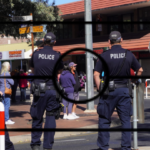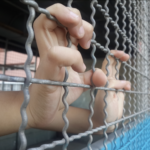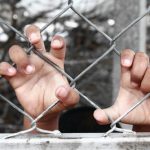Northern Territory Bail Reforms Target First Nations Youths, Warns Justice Not Jails
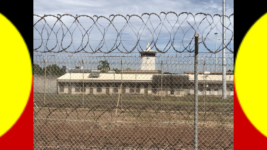
The Country Liberal Party (CLP) took office in the Northern Territory in August last year, having been elected on a platform that prioritised cracking down on youth crime.
This involved now NT chief minister Lia Finocchiaro and her colleagues, all of them grown adults, posturing before the press in regard to getting tough on children and throwing them in gaol.
And as the newly formed grassroots advocacy group Justice Not Jails pointed out on Monday, when these recently drafted youth bail measures came into effect, these harsh laws specifically target Black children.
This is easy to prove. NT Department of Corrections youth detention figures reveal that at any given point over the last 12 months, over 90 percent of kids locked up in the territory’s two child prisons were First Nations children. And this has been the case going back to at least 2020.
Indeed, on occasion, the entire NT youth prisoner population is entirely made up of Indigenous youths.
On 16 October, the Finocchiaro government introduced five pieces of law-and-order legislation, with four of the bills being passing through the unicameral parliament that same day, 16 October 2024, which was only the second sitting day of the new term of parliament.
The youth bail reforms, which ensure that more children will be sent away on remand, along with a law serving to drop the age of criminal responsibility back down from 12 years old to ready-for-a-prison-sentence at 10, were amongst the measures passed immediately by the Country Liberals.
Locking up Black kids
“For years, we have stood up to the NT government,” said Justice Not Jails spokesperson Natalie Hunter. “We have tried to make them see sense, repeated the same facts and statistics and explained the evidence. We have told our own harrowing personal stories, hoping someone would listen.”
“In the Northern Territory, Black children are dehumanised at every turn,” the Nyikina woman continued in a statement on Monday.
“They are stolen from their families and severed from their culture. They’re left out of education. They’re locked up and treated like animals.”
Justice Not Jails highlights that the CLP isn’t applying the “same urgency” to “addressing structural drivers” of youth crime, as it is in cracking down on it. And the group further suggested that Finocchiaro might better serve the community by focusing on youth homelessness, which is 12 times the national average, as well as dealing with social housing wait times that can last for up to 10 years.
However, the group points out that the CLP is instead pushing ahead with the costly exercise of permanently transferring all the youths from the children’s corrections facility in Mparntwe-Alice Springs to Darwin’s Holtze “youth justice centre”, which opened early last November and replaced the notorious Don Dale as the NT’s new kiddie gaol.
This means children, for the most part Aboriginal kids, are being moved 1,500 kilometres away from their current setting, which will severely limit any regular visits from family, relatives and friends.
A long-time Close Don Dale campaigner, Hunter further warns that if circumstances continue in the direction the CLP is taking them, communities are going to become less safe.
“We need everyone to stand up to this government,” the justice advocate underscored. “Especially the peak bodies, the service providers, and the organisations that are funded to support our children.”
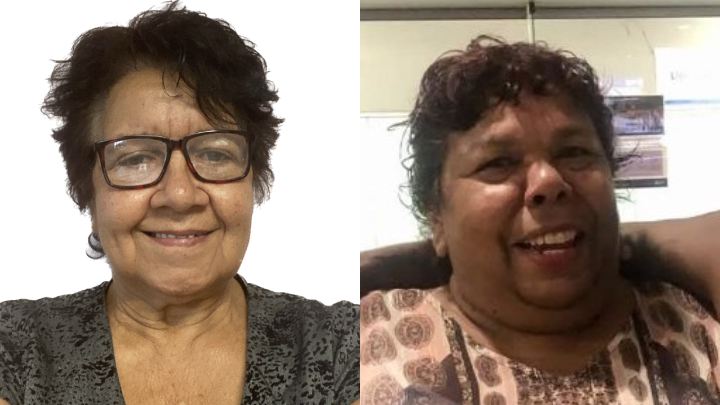
A nation’s shame
The July 2016 Four Corner’s documentary Australia’s Shame exposed the teargassing and torture of kids by adult NT “youth justice officers” in Don Dale youth gaol, and it aired a month before the Country Liberals were voted out of office, after a four year stint in power.
The Don Dale revelations garnered global attention and led to the establishment of the Royal Commission into the Protection and Detention of Children in the Northern Territory, which was established in July 2016, the same month the documentary was shown, and it ended in November 2017, with key recommendations made involving closing Don Dale and raising the age to 12.
The NT raised the age of criminal responsibility from 10 to 12 in late 2022. However, the
Criminal Code Amendment Bill 2024 (NT) served to drop the age back down to 10 years old, as of 30 October last year.
This reversal of the reform would seem to imply that the Country Liberals consider that over the two years that the age criminal responsibility stood at 12 years old, territory law enforcement and the local court system had been at a disadvantage, as they couldn’t incarcerate 10- and 11-year-olds.
Ramping up remand
The Bail Legislation Amendment Bill 2024 contained the youth bail laws that came into effect on Monday.
The reforms included the reinstatement of the offence of breach of bail for youths. When Queensland rolled out this same reform in 2023, it had to suspend its Human Rights Act 2019 (Qld), due to the fact that enacting such a law was a violation of the rights of youths.
Finocchiaro has further expanded the ‘presumption against bail’ regime that already applied to adults, so that it now applies to children, and this presumption applies to all serious violent offences regardless of weapons used, as well as to crimes committed whilst on bail.
Community-led solutions
“Most of these kids are experiencing poverty, disability, removal, poor health, low education and trauma, all before ten years old,” said Justice Not Jails member Yvonne Dunn. “And we expect a 10-year-old to be the bigger person, to always regulate their feelings, to never step out of line.”
“The fact is that you can’t have 100 percent Black children behind bars without dehumanising them,” the Tiwi woman continued.
“These new laws directly target Black children, especially those that come from remote communities. You have to be racist/ignorant to think these laws will benefit the community.”
According to Justice Not Jails, community safety could be improved with investment into First Nations-led solutions to homelessness, substance use and disengagement. However, the Country Liberals continue to invest in costly and redundant law-and-order solutions, whilst complaining about growing NT debt.
The social justice group is calling on the Finocchiaro government to take the funds its pouring into law enforcement and the prison system and funnel them into community-led changes that actually make a difference to the circumstances of children’s lives.
“Seven years ago, the Royal Commission laid bare the horrific and criminal treatment of Black children in prisons,’ said Hunter in concluding.
“The CLP was disgraced. They admitted that there was no evidence for their ‘tough on crime’ policies. They admitted that they only did it to win votes. And now they’ve done it again.”



